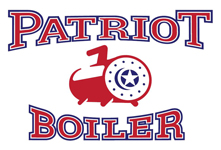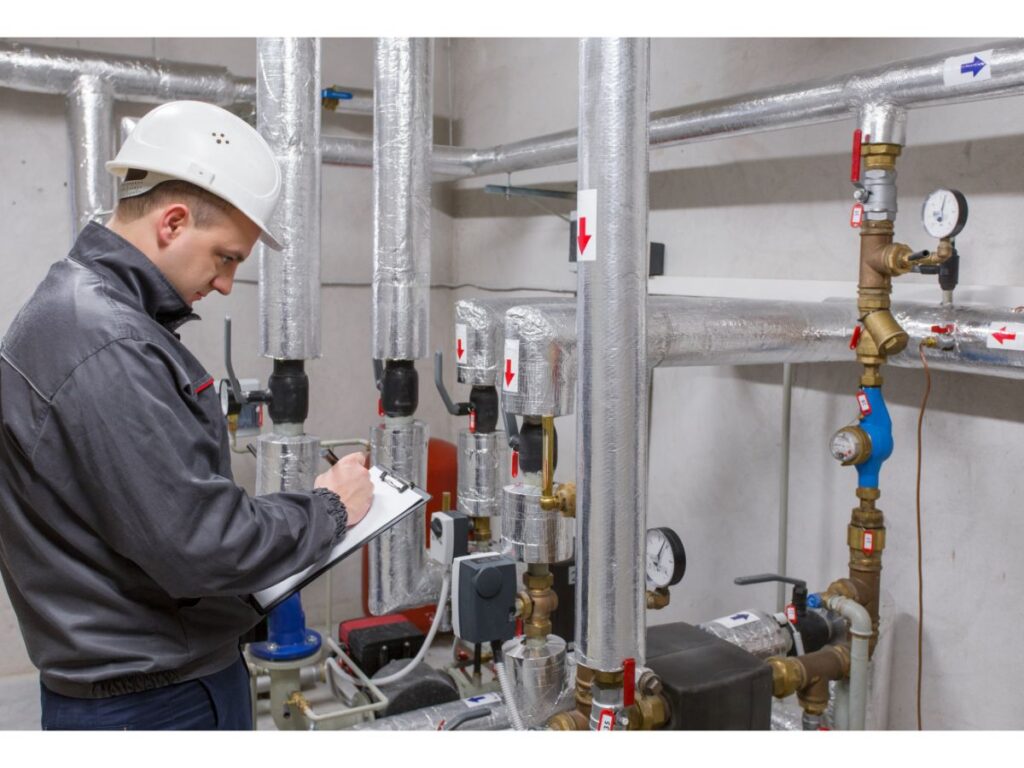Every boiler is unique. Even though they are all the same model, they are still different. It is clear from how thick the metal is, how hot the skin gets, and how much heat it can take. One of the essential parts of a boiler’s life, no matter what brand, model, or serial number it has, is when it gets its first start-up and is put into service. When done right, it sets the stage for how the boiler will work when conditions are at their best. It could cause serious problems immediately when poorly done or not at all. During startup, there are many things that need to be checked and tested. However, this post will focus on boiler water treatment and what needs to be done to clean and chemically passivate a new boiler system.
How to Start a Boiler
Proper commissioning is an integral part of any good maintenance plan for a boiler. When a new boiler is put in place, the pressure vessel will probably be full of mill oils, grease, protective coatings, and other things that got there during the making of the boiler. Also, there will be more oils and grease, as well as welding slag (iron and cutting oils), inside the new piping system as it is built and put in place.
An alkaline boil-out must be done to remove oils, greases, and other protective coatings from the waterside heat transfer surfaces. That is unless a boiler is made with stainless steel or aluminum heat transfer surfaces. (IMPORTANT: You shouldn’t use alkaline products in stainless steel or aluminum boilers. High alkalinity can break down aluminum and make stainless steel brittle and prone to cracking from stress. To start up these kinds of boilers, you need to use particular tools.)
Alkaline Boil-out
All steel boilers, including mild steel, molybdenum steel, and even cast iron, can benefit from an alkaline boil out of their water-facing surfaces. During startup and commissioning, this process is done to prevent early failure caused by localized overheating. It happens when boiler water can’t carry away the heat of combustion because of deposits, oil, grease, etc. Some people call this “hot spot” – a place where foreign material sticks to the boiler’s metal heat transfer surface. It also causes a localized area of insulation that causes it to get too hot.
In addition to metallurgical problems that can come from a bad startup, many plants have purity requirements for steam that they can only meet if a proper boil-out program is in place. For example, suppose a cooked vegetable processing plant that uses direct steam to cook or peel vegetables doesn’t do an adequate boil-out on its new (or recently fixed) boilers. In that case, their product could become very contaminated. It could cause massive losses in production, and if not caught, it could lead to health problems for consumers.
Another place where direct steam is often used is at the steam press in a commercial laundry. If any mill oils are in the system, they will most likely get on the fabric being pressed and ruin it.
Boil-out Process
During the boil-out process, chemicals like Trisodium Phosphate (Na3PO4, 12H2O), Caustic Soda (NaOH), and, at times, Soda Ash are used together, but not always (Na2CO3). When doing the boil-out, it is crucial to always follow the manufacturer’s advice about which chemicals to use. Also consider how much to use, how to use them, and how long to let the fire burn. For example, suppose your boiler’s water column gauge glass has mica. In that case, the manufacturer will usually tell you to either turn off the water or put in a temporary glass during the boil-out process. It is to keep the mica from getting damaged. Most boilers with round glass water columns don’t have to meet these standards.
It is often best to leave the alkaline boil-out process to a good water treatment company. This is because alkaline boil-out chemicals are so corrosive and pose a risk to people. They will have the right products, procedures, and people to meet a wide range of manufacturer and customer needs. Not all companies that treat water will give you the chemicals and service you need to do a boil-out right.
A proper alkaline boil-out is just as crucial for boilers that have been re-tubed in the field as it is for boilers that have just been installed.
If a new or re-tubed boiler is not chemically commissioned appropriately, one or more of the following things can happen. They may occur with varying degrees of severity:
- Contaminants carry over into the steam system, causing loss of productivity, failure of steam traps, problems with steam purity, and discoloration of products.
- More turbidity and discoloration in the boiler and water column
- Loss of water column and boiler gauge glass
- Loss or failure of boiler water level control systems, water columns, and low water shut-offs
- Loss of heat transfer efficiency, which causes more fuel to be used.
- Overheating in one place
- Tube corrosion in the pits and/or under the deposits
- Change from boiling nucleate (the inability of the boiler water to produce steam and thus carry heat away from the generating tube as a result of the contamination insulating the water from the heat source)
- Boiler water treatment programs don’t reach the metal surfaces well or don’t work at all.
- Baking on of oils, greases, and other pollutants as the boiler is kept on
- Less time for a boiler to last
- Premature boiler failure



Recent Comments